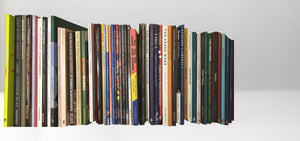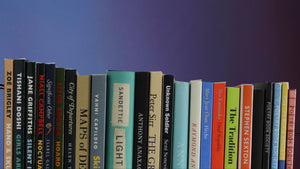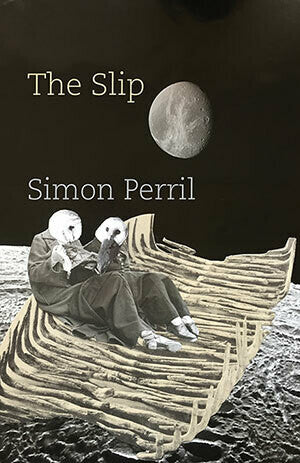The Slip by Simon Perril
Shearsman
The Slip is the final volume of Perril’s trilogy excavating the crime scene at the centre of archaic lyric. We can’t know whether ancient Greece’s first lyric poet Archilochus really’ used his Iambic prowess to curse Lycambes’ family to its grave for a broken marriage oath. But neither can we doubt that his poetic legacy, in Antiquity and beyond, was a by-word for judgements over the acceptability, or otherwise, of indulgence in poetic harm; just as the literary form of Iambic he is famous for initiating is a locus of ethical crises.
The Slip is steeped in the animal fables within the surviving fragments of Archilochus, pre-Aesopical ainos that were likely stock elements of Iambic verse.Most famous are the sequence of fragments in which the fox recounts his revenge upon the eagle (widely regarded as code for Lycambes) who has betrayed their friendship by eating the vixen’s cubs. The fox curses the eagle and appeals to Zeus to intervene and bring justice to bear; the greedy eagle steals meat from a sacrificial altar only to have it burn down his nest and cause its young to fall out into the jaws of its vulpine rival.
So, here are the last steps of the ‘wolf walker’ Lycambes, undergoing his curse in the Dog Days of summer on the cusp of following the death of his daughters with his own, and reminiscing. Central to this reminiscence are the early expeditions to colonise Thasos he undertook with Telesicles, Archilochus’s father, and that doubtless confirmed, if not established, the bond between the families that he shatters in breaking his oath. In pottery, the slip is a liquified suspension of clay in water and was painted onto the areas of ancient pots intended to emerge black in the firing process. Needless to say, notions of the slip also encompass all manner of acts of evasion, disguise, and the tying of a noose.
“Simon Perril listens to what movement is: syllable to rhyme, image to ear, caesura to dream” —Lisa Robertson
“Simon Perril neither translates nor imitates the first Greek lyric poet Archilochus … he ‘occupies’ him, finds accommodation within the shells and fragments of verse he left … Perril’s poems … are moving, hilarious, angry, erotic, charged.” —Michael Schmidt
“there is a chiming lyrical texture in tone, sound values and rhythm … Perril has a rich command of metaphorical resource”. —Peter Riley

MEMBERS ENJOY 25% OFF ALL POETRY BOOKS

Join the Poetry Book Society for 25% off all books
Join the Poetry Book Society for 25% off all books

